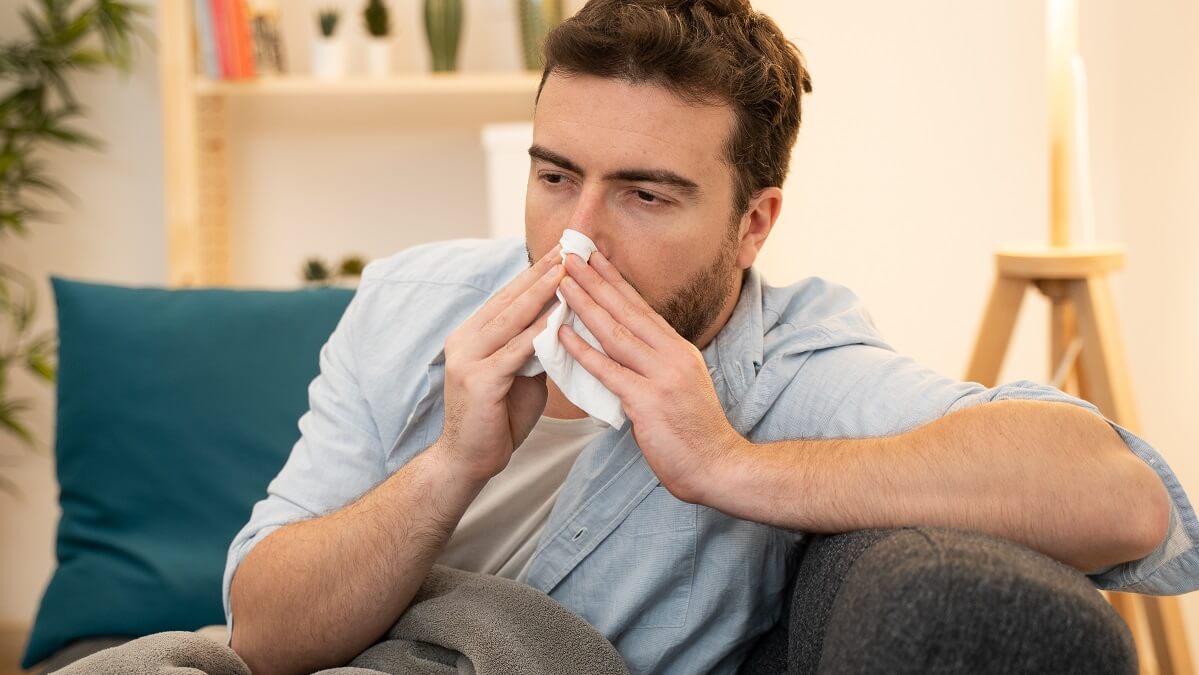One of the most puzzling aspects of COVID-19 is the fact that many individuals contract the virus but never develop any symptoms, while others suffer greatly. Why is that the case?
Recent research has shed light on the mystery, revealing there may be a genetic basis for these asymptomatic cases. These so-called ‘super dodgers’ were found to carry a specific gene variation that grants them a remarkable advantage in fending off the virus, also providing crucial insights into the varying responses to COVID.
The study, a collaboration between Australia’s La Trobe University and researchers at UC San Francisco, was published in the journal Nature this month and provides the first evidence of a genetic link to asymptomatic SARS-CoV-2 infection. The key lies within the human leukocyte antigen (HLA), which are protein markers signalling the immune system.
A particular mutation in the gene’s coding for HLA, known as HLA-B*15:01, is found to be twice as common in individuals who remain asymptomatic after contracting the virus compared to those who develop symptoms.
The HLA-B*15:01 variant appears to empower virus-killing T cells, a vital component of the immune system, to identify and launch a swift attack against thew COVID virus. Remarkably, T cells from individuals carrying this genetic variant can recognise the novel coronavirus, even if they have never encountered it before, thanks to its resemblance to seasonal cold viruses they already know.
Professor Jill Hollenbach, lead author of the study, gave a military analogy to describe the results.
“If you have an army that’s able to recognise the enemy early, that’s a huge advantage,” she says.
“It’s like having soldiers that are prepared for battle and already know what to look for, and that these are the bad guys.”
Around 20 per cent of the more than 30,000 study participants who remained asymptomatic after infection carried at least one copy of the HLA-B*15:01 variant, whereas only 9 per cent of those who experienced symptoms had this variant.
Individuals who had two copies of the variant were over eight times more likely to avoid feeling sick. The genetic mutation doesn’t prevent the virus from infecting cells, but it does shield people from developing any symptoms, including minor ones like a runny nose or a barely noticeable sore throat.
Interestingly, the study group was primarily composed of self-identified white individuals due to the lack of sufficient data from other ethnic and racial groups. The analysis revealed that risk factors typically associated with severe COVID-19, such as age, weight, and chronic diseases like diabetes, did not play a significant role in determining who would remain asymptomatic.
To understand how this genetic difference provides protection against the virus, researchers collaborated with scientists from La Trobe University, focusing on the concept of T cell memory, which is how the immune system remembers previous infections.
Their examination of T cells from individuals carrying the HLA-B*15:01 mutation, who had not been exposed to COVID, demonstrated that these cells still responded to a part of the novel coronavirus known as the NQK-Q8 peptide.
These individuals had been exposed to seasonal coronaviruses containing a similar peptide, NQK-A8, which enables their T cells to recognise and respond rapidly to the COVID virus.
The discoveries hold a lot of promise for the development of future vaccines and treatment options.
By studying the immune response of these ‘super dodgers’, scientists may uncover ways to promote stronger immunity in the broader population, ultimately contributing to our ability to combat future pandemics effectively.
Have you had COVID? Where your symptoms severe or almost non-existent? Let us know in the comments section below.
Also read: Aussie researchers develop long COVID drug


Maybe if they looked at the vaccination status of the severe cases, they would get a better understanding of why some people are affected worse than others.
I have wondered about this…I have been in VERY close contact with SO many family and friends who have had COVID, and have not (apparently), contracted the virus.